Rascals case in brief
In the beginning, in 1989, more than 90 children at the Little Rascals Day Care Center in Edenton, North Carolina, accused a total of 20 adults with 429 instances of sexual abuse over a three-year period. It may have all begun with one parent’s complaint about punishment given her child.
Among the alleged perpetrators: the sheriff and mayor. But prosecutors would charge only Robin Byrum, Darlene Harris, Elizabeth “Betsy” Kelly, Robert “Bob” Kelly, Willard Scott Privott, Shelley Stone and Dawn Wilson – the Edenton 7.
Along with sodomy and beatings, allegations included a baby killed with a handgun, a child being hung upside down from a tree and being set on fire and countless other fantastic incidents involving spaceships, hot air balloons, pirate ships and trained sharks.
By the time prosecutors dropped the last charges in 1997, Little Rascals had become North Carolina’s longest and most costly criminal trial. Prosecutors kept defendants jailed in hopes at least one would turn against their supposed co-conspirators. Remarkably, none did. Another shameful record: Five defendants had to wait longer to face their accusers in court than anyone else in North Carolina history.
Between 1991 and 1997, Ofra Bikel produced three extraordinary episodes on the Little Rascals case for the PBS series “Frontline.” Although “Innocence Lost” did not deter prosecutors, it exposed their tactics and fostered nationwide skepticism and dismay.
With each passing year, the absurdity of the Little Rascals charges has become more obvious. But no admission of error has ever come from prosecutors, police, interviewers or parents. This site is devoted to the issues raised by this case.
On Facebook
Click for earlier Facebook posts archived on this site
Click to go to
Today’s random selection from the Little Rascals Day Care archives….
Click for earlier Facebook posts archived on this site
Click to go to
Today’s random selection from the Little Rascals Day Care archives….
Could N&O have thwarted ‘prosecutor gone wild’?
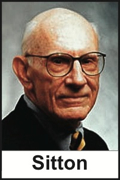 March 18, 2013
March 18, 2013
“When I look back, I think my greatest mistake (was) my failure as editor of the News & Observer to make sure we had a top-notch investigative reporter on the Little Rascals case in Edenton.
“Our regional person was adequate as a regional correspondent, a full-time staffer, but he was not the person to see what was wrong with this case and to do the necessary digging to root it out.
“That prosecutor had gone wild, eaten up by ambition, I suppose, to hang these people, these people who operated the Little Rascals Day Care Center, no matter how.
“…All the kids talked about being borne through the air this way and that way and flying all over, and it was crazy stuff.
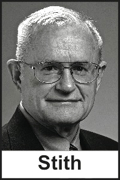 “As it turned out, (the Edenton Seven were eventually released), but it wrecked their lives forever. And I still feel sorry about that, still feel sorry about it.
“As it turned out, (the Edenton Seven were eventually released), but it wrecked their lives forever. And I still feel sorry about that, still feel sorry about it.
“I think had we sent someone like Pat Stith down there, that would have been it.
“But see, at that time, Edenton already was a pretty far reach for the News & Observer…. (Our) pulling out of eastern North Carolina (to cut expenses) might have affected my thinking (about) whether we were really responsible for doing something about that miscarriage of justice.”
– From an interview with Claude Sitton, editor of the Raleigh News & Observer from 1968 to 1990 (Southern Oral History Program, Southern Historical Collection, UNC Chapel Hill, July 12, 2007)
‘I was aware of the possibility of childish fantasy….’
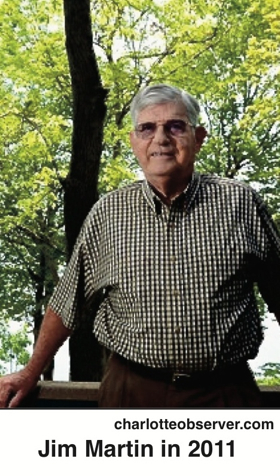 July 11, 2014
July 11, 2014
“…. As you might imagine, I had not had reason to think about the Little Rascals case until your email arrived. Yes, I was very interested in the case at the time, but had no role or authority to intervene. (See governor’s 1991 response to letter writers.) The arrests and charges were highly publicized, as were the proceedings of the trial, upon which the two accused were convicted. So, like most citizens, I felt a compulsion to follow the case, at least insofar as the news coverage.
“My recollection is that both the horrible accusations and the contrary indications of coached and imaginative testimony of the children were featured in the coverage…. Being very familiar with Arthur Miller’s brilliant drama, ‘The Crucible,’ I was aware of the possibility of childish fantasy passing as falsely condemning testimony. From a distance, most readers probably shared the concern, ‘What if it were true?’
“I do not recall whether the defense attorneys contacted my office in an appeal for clemency in 1991-1992. Had they done so, they would have been advised that my practice was to let the appellate courts complete their judicial review before considering clemency. This was complete in 1995 when the NC Supreme Court declined to review the finding by the Court of Appeals of trial error, at which time there would be no cause for Governor Hunt to intervene. I have great respect for the judgment and integrity of then Chief Justice Burleigh Mitchell, and that would settle the legal principles of the matter for me.
“I can only wonder what conclusion I might have reached had the appeal for clemency been properly before me. My approach in such cases was to meet separately with advocates on both sides, without restricting the nature or style of what they had to say. I would make my decision based on corroborated evidence and the trial record, without following its standards for disqualifying some evidence. I gave attention to two main standards: (a) whether the punishment was suited to the nature of the crime, and (b) whether there was doubt as to the guilt of the person convicted….
“I believe your cause is to persuade the Governor to issue a Pardon of Innocence for Bob Kelly and Dawn Wilson. It may be difficult to produce exculpatory evidence several decades after the events. You did not say whether Mr. Kelly and/or Ms. Wilson wish to return to that gauntlet, considering the degree to which they have restored their lives. If they do, it would my hope that Governor McCrory and his counsel would weigh the two guidelines cited above, although no Governor is bound in clemency matters by any precedent of his predecessors. While it can be difficult to prove a negative, it would help your cause if there were former accusers now in their thirties who have recanted the accusations of their childhood. Otherwise, the appellate finding of procedural error alone might not be sufficient.”
– From a letter from former Gov. Jim Martin responding to my question about his recollections of the Little Rascals Day Care case
As welcome as a gubernatorial pardon would be, my hopes for the Edenton Seven are more modest: a “statement of innocence” from the governor or attorney general similar to that given the defendants in the Duke lacrosse case.
If only the Little Rascals prosecutors had been as familiar with “The Crucible” as was the governor….
Betsy Kelly wouldn’t succumb to state’s torture
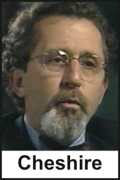 July 16, 2012
July 16, 2012
“Elizabeth Kelly was denied parole Friday, three months after pleading no contest to charges of sexually abusing children at her Edenton day care.
“Mrs. Kelly, sentenced to seven years, was eligible for parole upon entering prison because she had already served more than two years while awaiting trial.
“Prosecutor Bill Hart said opposition to Mrs. Kelly’s release was heightened by her statements of innocence after entering her plea.
“‘From my work dealing with sex offenders there is no way you can treat a sex offender and restore them to the community until that person admits the wrongness of her actions and takes responsibility….’”
– From the Associated Press, April 16, 1994
From the beginning, the prosecution never missed a chance to tighten the thumbscrews on Betsy Kelly: Plead guilty, implicate your husband or suffer grave consequences. Although she eventually took a plea bargain, she never accommodated Bill Hart’s pious insistence that she admit “the wrongness of her actions.”
In October 1989, about six weeks after her arrest, a hearing had been held in Raleigh on whether Kelly should be forced to move from a mental health unit into Dorm C at women’s prison.
Recalls Faye Sultan, a Charlotte forensic psychologist who testified on her behalf: “She had been found guilty of nothing at that point, but she was being housed in the most isolated, restrictive facility in the prison, where Death Row and disciplinary inmates were housed. Seems a bit unfair, no?”
Sultan testified that Kelly’s “psychological condition is rapidly deteriorating, and in fact she is on the edge of becoming psychotic.”
Why would the state insist on moving a pretrial “safekeeping” defendant to such a hostile environment? “The reason was to pressure Betsy,” says Joe Cheshire, her lawyer. “They didn’t know her very well, did they?”
Professional child abuse: Creating false memories
Dec. 5, 2011
In this (Nov. 29) New York Times analysis of science’s ever-growing skepticism about eyewitness testimony I noticed a familiar name:
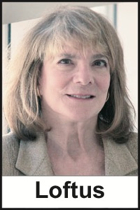 “One of the earliest and more famous experiments to demonstrate that memories are malleable was conducted by Elizabeth Loftus, a psychology professor at the University of California, Irvine, and an early pioneer of witness memory research.
“One of the earliest and more famous experiments to demonstrate that memories are malleable was conducted by Elizabeth Loftus, a psychology professor at the University of California, Irvine, and an early pioneer of witness memory research.
“In a 1974 study published in The Journal of Verbal Learning and Verbal Behavior, (Loftus) asked participants to view films of fender-benders in which no car windows or headlights were broken. Later, the subjects who were asked how fast the cars were going when they ‘smashed’ into each other – as opposed to ‘hit’ – were more likely to report speeding and describe shattered glass they never actually saw.”
While researching a book on the Wenatchee, Washington, ritual sex abuse case (1994-95), Kathryn Lyon asked Loftus about the consequences when professionals contribute to and reinforce false memories in children.
“If you believe real child abuse has long-term deleterious consequences,” Loftus responded, “then what happens when you create a false memory of child abuse? Are you creating a victim who is also likely to have long-term troubles?
“Having a real and a pseudo memory are in many ways the same. If you create the memory, are you not creating child abuse?”
Lyon, a lawyer, spent a year in Wenatchee to write the thorough and chilling “Witch Hunt: A True Story of Social Hysteria and Abused Justice” (1998).











0 CommentsComment on Facebook